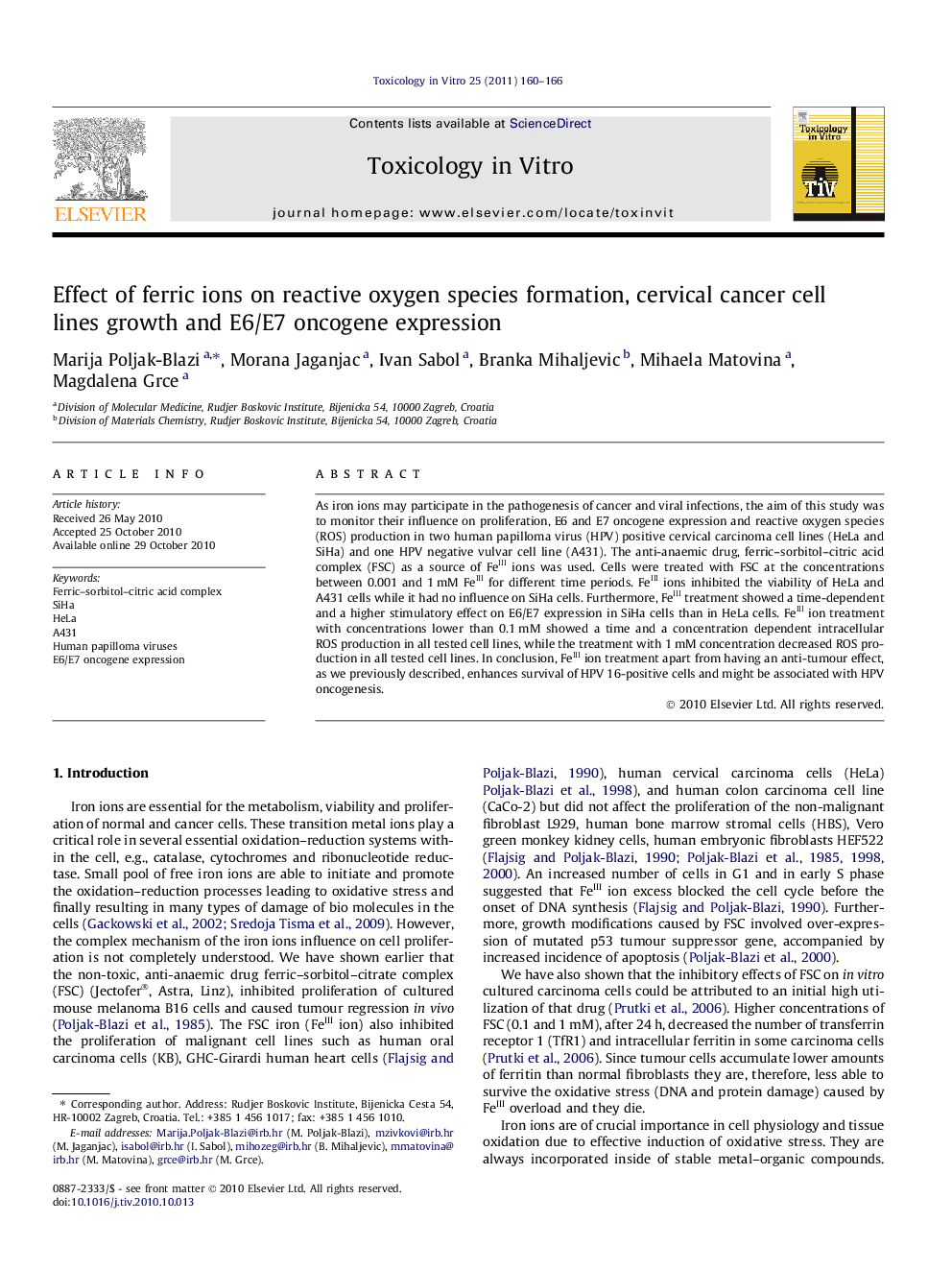| Article ID | Journal | Published Year | Pages | File Type |
|---|---|---|---|---|
| 2602886 | Toxicology in Vitro | 2011 | 7 Pages |
As iron ions may participate in the pathogenesis of cancer and viral infections, the aim of this study was to monitor their influence on proliferation, E6 and E7 oncogene expression and reactive oxygen species (ROS) production in two human papilloma virus (HPV) positive cervical carcinoma cell lines (HeLa and SiHa) and one HPV negative vulvar cell line (A431). The anti-anaemic drug, ferric–sorbitol–citric acid complex (FSC) as a source of FeIII ions was used. Cells were treated with FSC at the concentrations between 0.001 and 1 mM FeIII for different time periods. FeIII ions inhibited the viability of HeLa and A431 cells while it had no influence on SiHa cells. Furthermore, FeIII treatment showed a time-dependent and a higher stimulatory effect on E6/E7 expression in SiHa cells than in HeLa cells. FeIII ion treatment with concentrations lower than 0.1 mM showed a time and a concentration dependent intracellular ROS production in all tested cell lines, while the treatment with 1 mM concentration decreased ROS production in all tested cell lines. In conclusion, FeIII ion treatment apart from having an anti-tumour effect, as we previously described, enhances survival of HPV 16-positive cells and might be associated with HPV oncogenesis.
